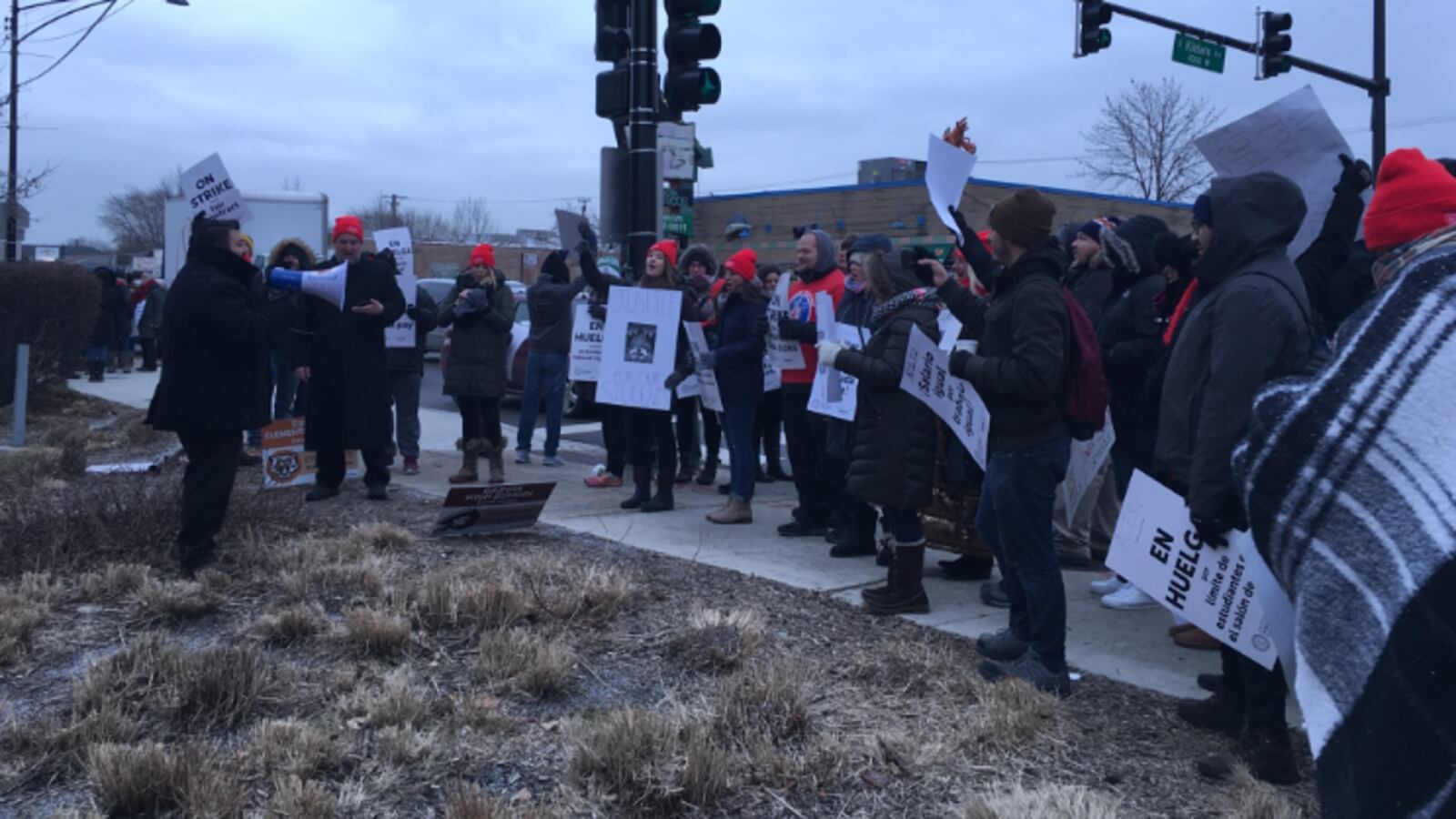A charter strike in Chicago that has displaced 7,500 students continued Friday, with teachers and union members planning a noon picket line in front of a longtime alderman’s South Side offices.
About 500 teachers have been striking since Tuesday, forming picket lines outside of 15 Acero schools.
On Friday, they plan to spread their protest to the offices of Ed Burke, whose increasingly Latino ward includes seven Acero campuses. Burke — whose offices were raided by federal authorities last week, for reasons that are still unclear, was instrumental to supporting the charter network in its early days. At the time, it was called the United Neighborhood Organization, or UNO, and connected to a political organization of the same name.
Now, union officials are demanding that Burke personally reach out to Acero CEO Richard Rodriguez to advance negotiations.
With the strike now on day four, both the union and Acero management have reported small gains, but a sticking issue appears to be salary increases for paraprofessionals and support staff. Chalkbeat examined that issue here.
Read these stories to catch up on the strike and its significance:
- The network’s predominantly Latino families are starting to feel the strain of missing school due to the strike.
- Community organizations have stepped up to provide day camp options for working parents, but not very many have taken advantage of them.
- Acero management made a video for YouTube explaining their position.
- In a tough week for charters, school district leaders denied applications to open schools next year from other charter operators.
- Some charter school parents are pushing back on what they perceive to be a cold shoulder by the district to their schools.
The strike represents the first major labor action by charter school educators unionized under the Chicago Teachers Union, which until recently represented only teachers in the city-run school district. Acero’s own teachers union merged with CTU last year amid a broad push by CTU to organize educators at publicly funded, privately run charter schools.
Acero’s prominence in the city makes the strike a victory for that effort. The network’s first school opened in 1998, and a period of rapid growth followed, with the group winning an unprecedented state grant of $98 million to build schools — unheard of in Illinois for a charter operator — in 2009. The charter network later severed ties with the founding organization and it changed its name to Acero in 2017.

